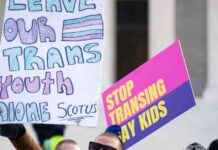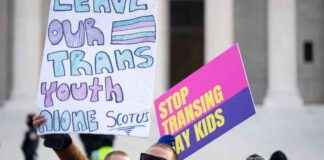Target’s Decision to Roll Back DEI Initiatives
In a surprising move, retail giant Target announced on Friday that it will be rolling back its diversity, equity, and inclusion (DEI) programs. This decision, outlined in a memo sent to employees by Kiera Fernandez, Target’s chief community impact and equity officer, involves ending its three-year DEI goals, ceasing reports to external diversity-focused groups, and discontinuing a program dedicated to carrying products from Black- or minority-owned businesses. This change marks a significant shift for the Minneapolis-based retailer, known for its efforts to promote diversity and inclusivity in the past.
Industry-Wide Trend
Target’s decision to backtrack on its DEI initiatives reflects a broader trend among major corporations. Companies like Tractor Supply, Meta (formerly Facebook), Walmart, and McDonald’s have also recently abandoned DEI-related pledges and goals. While the specific reasons for each company’s reversal may vary, the overarching theme appears to be a move away from DEI commitments established in response to societal and political pressures.
Impact on Stakeholders
With the elimination of its DEI goals, Target joins the ranks of companies grappling with the implications of such a strategic shift. While the company assures that there will be no job cuts associated with this announcement, the long-term effects on employees, customers, and the broader community remain uncertain. In a landscape where diversity and inclusion initiatives have become increasingly central to corporate identity, Target’s decision raises questions about the future direction of its workforce and consumer engagement strategies.
Historical Context and Motivations
Target’s commitment to diversity and equity has roots in past events, notably the “Black Lives Matter” protests and the murder of George Floyd in 2020. In response to these incidents, CEO Brian Cornell pledged to enhance the company’s diversity efforts, setting ambitious goals to increase Black representation in the workforce, support Black entrepreneurs, and invest in Black-owned businesses. These initiatives, once heralded as emblematic of Target’s values, now face an uncertain future following the company’s recent policy revisions.
Challenges and Controversies
Target’s decision to scale back its DEI programs comes amid mounting pressure from conservative groups and political entities critical of corporate diversity measures. Past controversies, such as the backlash over Pride Month merchandise and threats to employees, have underscored the complexities of navigating inclusivity in a polarized environment. As Target grapples with the fallout from its policy changes, the company’s ability to balance internal priorities with external expectations remains a point of contention within the broader social discourse.
As we reflect on Target’s evolving approach to diversity and equity, it prompts us to consider the delicate interplay between corporate values, societal pressures, and individual experiences. In an era defined by shifting norms and competing interests, the decisions of major companies like Target offer a lens into the complexities of navigating diversity in the modern business landscape. How will Target’s latest policy adjustments shape its future trajectory, and what implications might they hold for the broader conversation around DEI in corporate America?



















